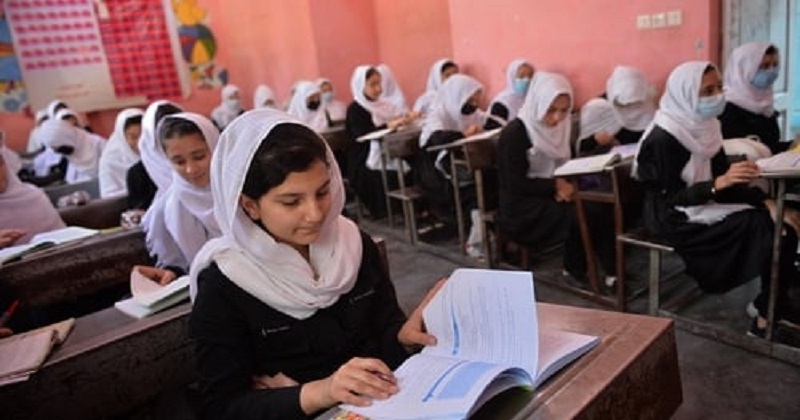
At a press conference in Kabul on Sunday, the acting Afghan Higher Education Minister Abdul Baqi Haqqani said, ‘Co-education is against Islamic values’. He stressed that his government is not opposed to women’s education, but rather the idea of men and women studying together. ‘We are working on building an Islamic environment where women could study… it might take some time’, he added. His statement did not specify when girls across the country might return to school or university classes.
Heather Barr, associate director of Women’s Rights at Human Rights Watch, blasted the decision, stating ‘This new order essentially moves… further in the direction of making women prisoners’. Barr explained that it ‘limits the ability of people to move about freely, to travel to another city, to do business, (or) flee if they are facing violence at home’. Despite the hardline Islamists’ efforts to project a moderate image internationally, aid has been suspended since the previous government collapsed during the US military pullout in the final stages.
In the meantime, the Ministry for the Promotion of Virtue and Prevention of Vice has issued guidance stating that women seeking long-distance travel should not be offered road transport unless they are accompanied by a close male relative. The Taliban have faced heavy criticism for keeping women and girls out of employment and education and excluding broad sections of Afghan society from the government.
Women news presenters are ordered to wear ‘Islamic hijab’ in their television dramas. Taliban definitions of hijab, which may include a hair covering, face veil, or full-body covering, are unclear, and most Afghan women already wear headscarves. Their targets, despite their promises of amnesty, have been officials of the former administration, accusing them of trampling on human rights.
Read more: China is developing a ‘prosecutor’ with artificial intelligence
In contrast, acting Afghan foreign minister Amir Khan Muttaqi said the government had returned peace and security and addressed demands for more inclusiveness that respects human rights, including those of women. ‘There is no benefit in political isolation of Afghanistan for anyone, so it is imperative that all support and back the prevailing stability, both politically and economically,’ he said.

Post Your Comments